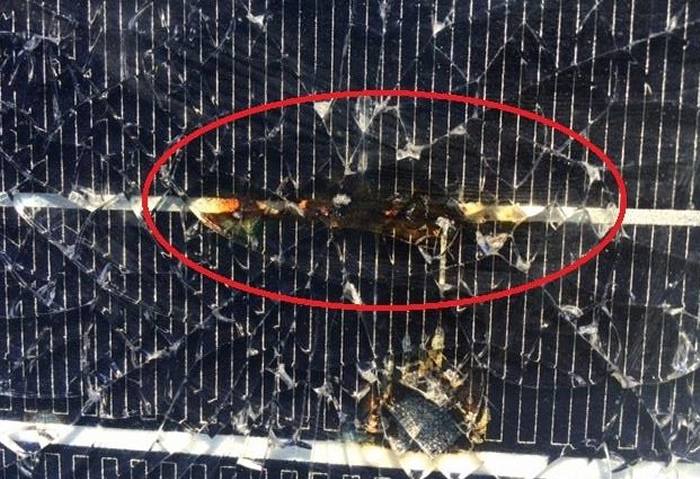
While representing a minority of installations, shonky solar in Australia can pose a threat to safety and/or seriously impact on return on investment.
A report published on Friday by the Sydney Morning Herald, citing unpublished data from the Clean Energy Regulator, states:
“Of 4140 small-scale solar systems, mostly rooftop units, inspected last year, 822 were “substandard”, meaning they did not meet Australian requirements and may prematurely fail. This equates to almost 20 per cent, compared to 22 per cent the previous year.”
Common issues included poor quality plastic coating of wiring and incorrect mounting or installation of components. SMH says around 2% of solar power systems inspected were deemed unsafe, often due to water ingress.
While there’s a lot of missing information in SMH’s report regarding these figures (and “substandard” can mean a minor issue), it does again highlight the importance of choosing a good solar installer. Many cowboys have been weeded out of the Australian solar sector over the years, but some are still active – and human error will always exist. Also, while some shonky operators may have left the arena, their shoddy work remains – an ongoing legacy of the high cost of cheap solar.
Inspection And Maintenance Of Solar Systems
This leads to another important issue – inspection and maintenance of solar power systems. This isn’t just about safety and identifying sub-standard work, but also ensuring a good quality system continues to perform at the best possible level.
On Saturday, the Clean Energy Council said while most rooftop solar panel arrays in Australia were working well, there will be some systems that are underperforming for various reasons.
“While the core components of solar systems are designed to function well for several decades, other components such as switches and cables will need replacement at different points in the lifespan of the system. Panels can also become covered in dust and bird droppings over time,” said Clean Energy Council Chief Executive Kane Thornton.
The CEC says each solar power system should come with documentation making recommendations about the frequency of maintenance.
Even on this point consumers should be a little wary. Some less-than-ethical solar companies have been known to include directions that systems must be “serviced” every twelve months by the provider (with the cost paid by the system owner), or panels cleaned by an accredited solar professional annually in order to maintain warranty. This is simply untrue and overkill in the case of a good quality system.
In his soon-to-be released book, The Good Solar Guide, author Finn Peacock says annual maintenance is not required and assuming a good quality and properly installed system, he recommends a proper electrical inspection every five years to make sure a system is working safely and reliably.
However, while solar panels should be self-cleaning assuming sufficient rain and at least 10-degree tilt, there may be occasions when manual intervention is required. SQ’s Ronald has provided some tips on how to clean solar panels.
Regular visual checks by owners are also important – the occasional glance-over from ground level checking for anything that looks amiss.

 RSS - Posts
RSS - Posts



I read the SMH article, and what seemed to come across between the lines was that one of the biggest issues was with homeowners not doing research before purchasing. While standards are important, there is still no way of getting away from doing extensive research before making as complex a purchase as a solar system.
This is something that needs to be understood better by a lot of people – they have a responsibility to do research before buying, and can’t expect authorities to take complete responsibility for protecting them.
It starts to become much easier to separate out the dodgy operators when you start asking difficult questions. That means educating yourself about some of the basics before you start speaking to installers. It should be obvious, but it seems so many people are not doing it.